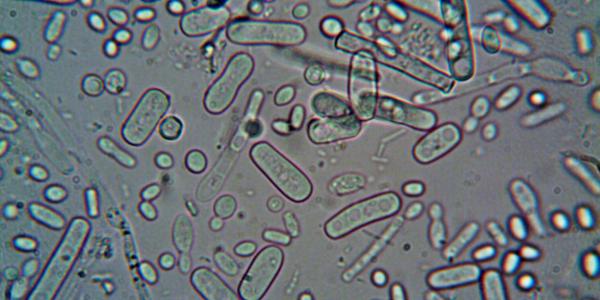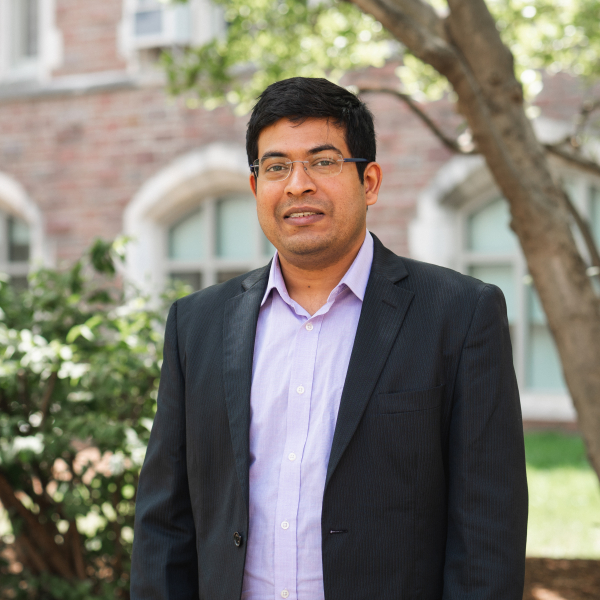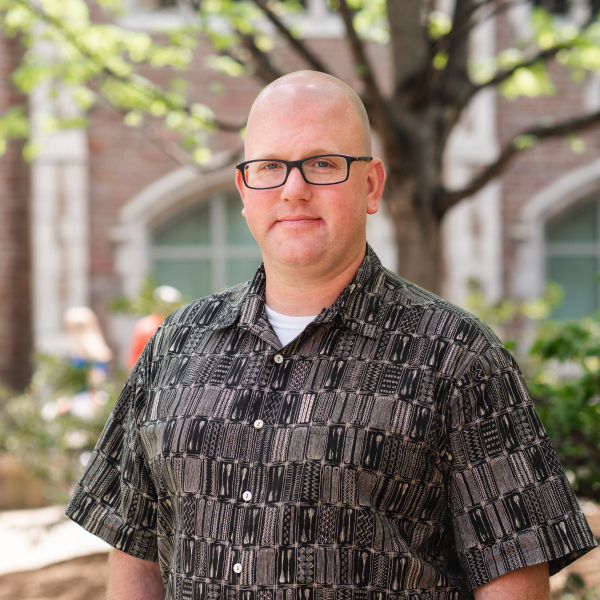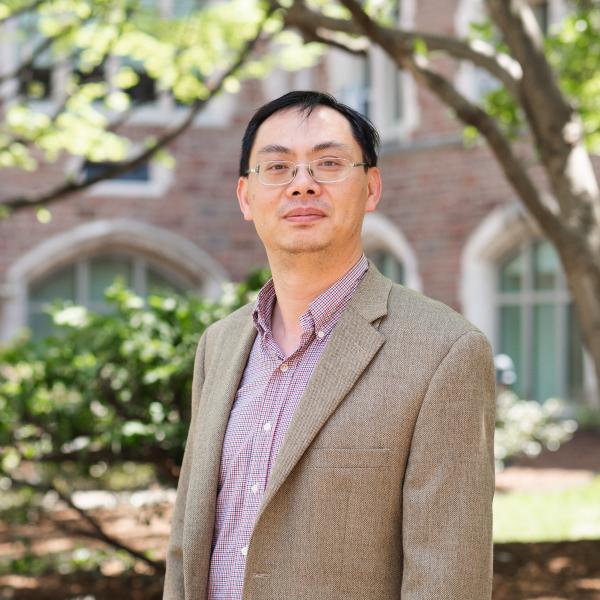Mikhail Tikhonov has won a prestigious National Science Foundation award for a project that will apply the statistical approaches of physics to the complicated world of microbial ecology.
Mikhail Tikhonov, assistant professor of physics, won a Faculty Early Career Development Program (CAREER) award from the National Science Foundation (NSF) for his project “Harnessing emergent simplicity for high-precision predictions in high-diversity ecosystems.” The highly sought-after award is reserved for early-career faculty who successfully combine research with mentoring and education.
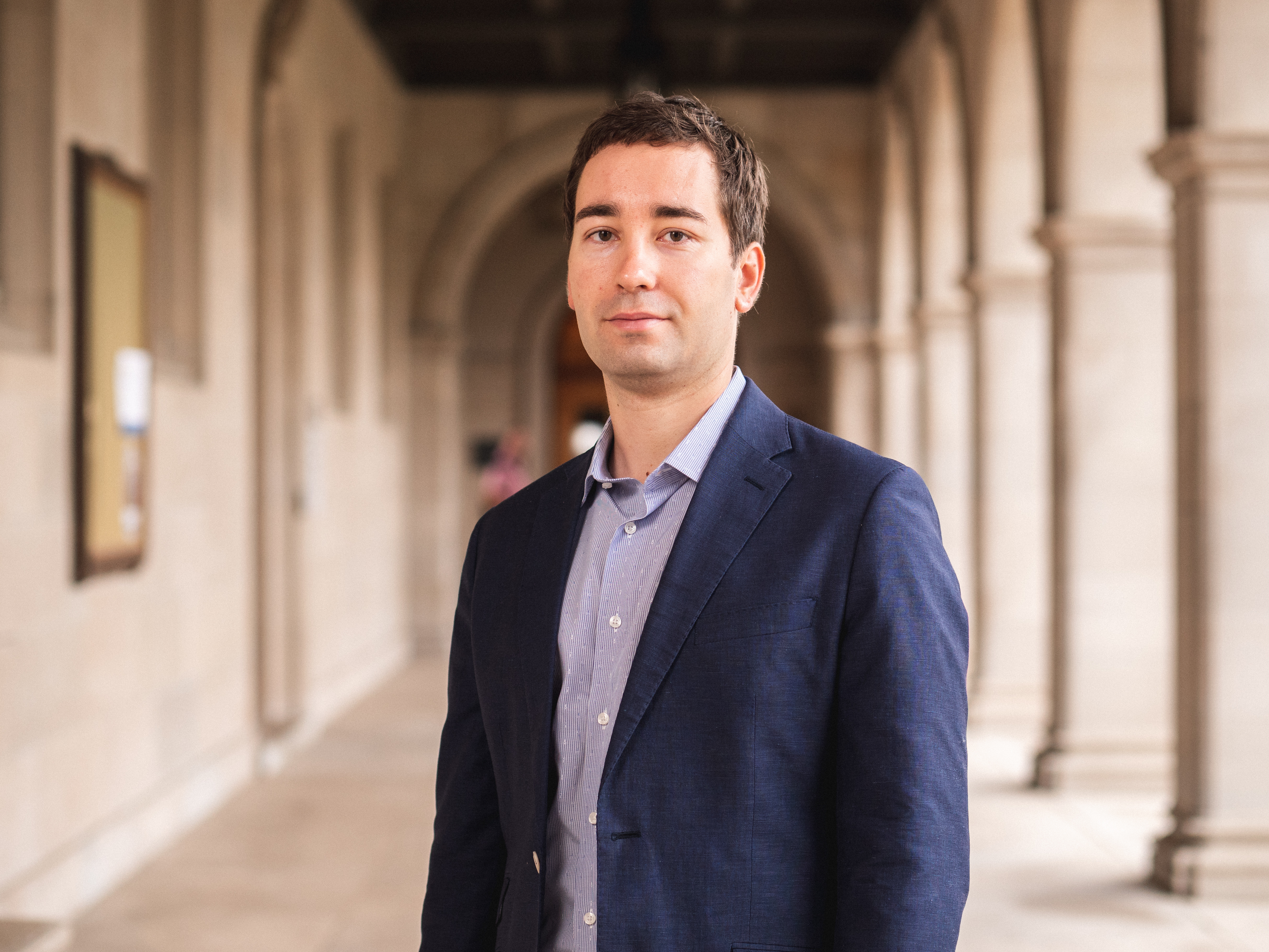
The grant will support Tikhonov’s efforts to describe microbial ecosystems using the concepts of statistical physics. “Some ecosystems appear to be surprisingly 'coarse-grainable,' meaning that simple models can predict complex properties," he said. "We want to understand when this happens and why.”
Physics and ecology may seem like an odd combination, but physicists have long been able to find simplicity in complicated scenarios. Tikhonov points to the example of gas molecules in a confined space. The individual molecules bounce off each other in chaotic, impossible-to-predict ways. But, in the big picture, the gas will follow certain laws of volume, temperature, and pressure.
Tikhonov wants to take a similar approach to communities of microbes living in soil — a far more complicated system. “It’s not just identical gas molecules bouncing around but hundreds of different species of bacteria interacting with each other,” he said.
Instead of trying to describe every interaction, he’s developing theoretical tools to identify aspects of the community that are predictable with simplified models. For example, when a community consumes a compound, the total uptake rate and changes resulting from environmental disruptions can be highly predictable, even if the contributions of individual community members vary widely. “We want to simplify the description of the system, not the system itself,” he said. “We may need to develop a new kind of ecological theory.”
Physicists are famous for hands-on experiments, but Tikhonov won’t have to do any digging to explore soil microbes. Instead, he’ll work with extensive data sets collected by microbial ecologists at the University of Chicago.
The CAREER award also recognizes contributions to teaching and mentorship. In his classes, Tikhonov emphasizes how physics education equips students with valuable skills for working with real-world data. “For highly quantitative data, like in climate science, biology, medicine, and finance, thinking like a physicist can be a very valuable skill,” he said. “But many students don't realize this because, in the traditional presentation of the curriculum, they would only encounter this in physics research, not in the classroom. I’m working to change this.”
Header image credit: Turek / Pexels

